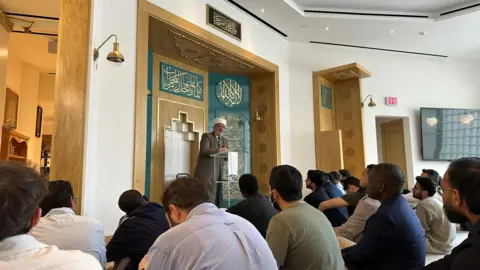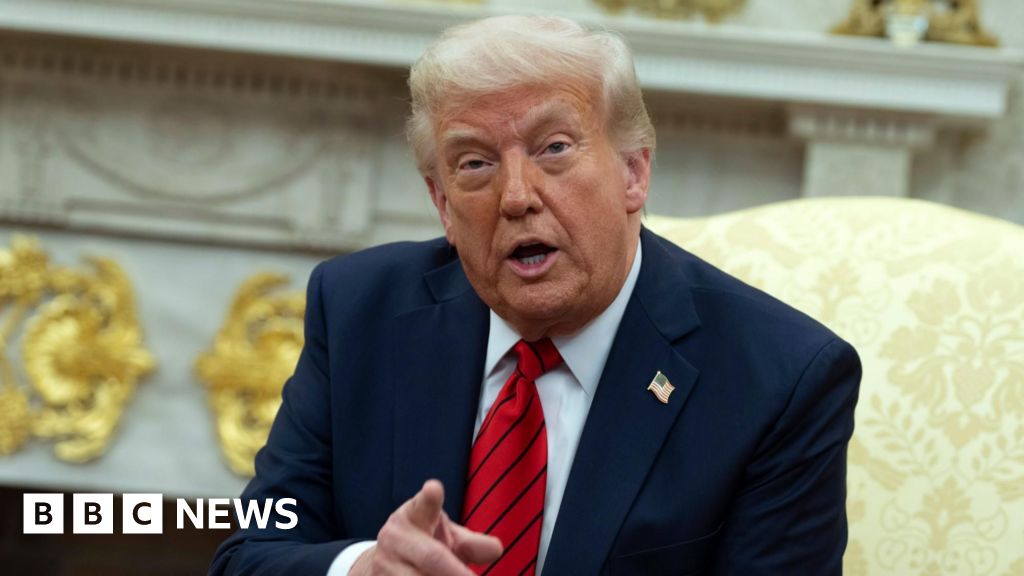Anxiety Among International Students in US Amid Detentions and Visa Revocations

In recent weeks, an unsettling trend has emerged among foreign students residing in the United States, evoking a wave of anxiety and fear across campuses nationwide. Social media feeds have been inundated with alarming reports of plain-clothes agents arriving unannounced to detain students, who are then taken away in unmarked vehicles to detention centers. These detentions, often caught on camera, have raised serious concerns as many of those apprehended have not faced any criminal charges. Instead, it appears they have been singled out due to their involvement in pro-Palestinian protests held on various college campuses.
The Trump administration has consistently articulated that visas are a "privilege" and retain the right to revoke them at any moment for a multitude of reasons. However, the scope of this crackdown appears to be more extensive than initially perceived. A report from Inside Higher Ed, a notable online news outlet dedicated to higher education, indicates that over 1,000 international students or recent graduates across the United States have had their visas revoked or their legal statuses altered. Disturbingly, many of these students are left in the dark regarding the exact reasons behind these changes, with universities often only learning about the revocations through a government-operated database that tracks the visa status of international students.
The alarming combination of targeted detentions and widespread visa cancellations has created an atmosphere of unease on campuses, from large public universities to prestigious Ivy League institutions. One international student enrolled at Georgetown University expressed his fears, stating, "I could be next." This student, who has penned articles discussing Israel and the ongoing conflict in Gaza, now carries a card detailing his constitutional rights in case he encounters law enforcement. Another student based in Texas shared his trepidation, admitting he has confined himself to his apartment, fearing that even a trip to buy groceries could put him at risk.
As the impact of these policies unfolds, many academic departments are being affected as well. Researchers who are currently abroad are hesitating to return to the United States, further exacerbating the situation. The students who spoke with the BBC have opted to remain anonymous, apprehensive that any exposure in the media might render them targets for similar actions.
The recent wave of detentions has involved several high-profile cases. For instance, Mahmoud Khalil, a student protest organizer from Columbia University, was arrested at his home in New York and is now facing deportation from a facility in Louisiana. Rumeysa Ozturk, a graduate student at Tufts University, was also detained in Massachusetts after co-authoring an op-ed discussing Gaza. She is now being held in Louisiana as well. Adding to this troubling narrative, Mohsen Mahdawi, another Columbia student involved in protests, was detained in Vermont while attending an interview for U.S. citizenship, despite holding a green card.
Commenting on the situation, the Georgetown University student noted, "Based on the detentions that we're seeing, I think there is a possibility anyone who has been outspoken about Palestine can be detained." The White House maintains that it is targeting individuals involved in activities that are deemed to "run counter" to U.S. national interests. In Khalil's case, administration officials have invoked a 1952 law that permits deportation if a person's presence is seen as a threat to U.S. foreign policy.
Furthermore, immigration appears to be a key issue that bolsters President Trump's approval ratings, particularly among U.S. adults. Recent surveys have indicated that approximately half of respondents support immigration actions, a figure that is notably higher than Trump's overall approval ratings.
On an institutional level, universities are also feeling the heat. Recently, the White House's task force focused on combating antisemitism froze over $2 billion in funding allocated to Harvard University after the institution refused to comply with a series of demands that they argued would undermine their autonomy. This development raises questions about the long-term implications of such governmental pressures on higher educational institutions.
Georgetown professor Nader Hashemi has expressed concerns that the primary objective of the government may be to "silence dissent" through intimidation tactics aimed at prospective protesters. He shared that students are feeling the weight of uncertainty, with one Georgetown student revealing he has asked his parents not to travel from India to the U.S. for his graduation ceremony due to fear of potential repercussions.
In addition to the anxiety surrounding their visa status, students are taking precautions to protect themselves. One student reported checking his email daily, hoping he will not be among those who have had their visas revoked. He has even implemented security measures on his phone and cleared his messaging app conversations in anticipation of potential arrests. Faculty members at Georgetown have shown solidarity, offering spare rooms to students worried about the possibility of immigration agents visiting their homes.
Meanwhile, students at Tufts University are left anxiously awaiting updates on their peer, Rumeysa Ozturk, who was detained outside her residence, adding to the growing list of alarming incidents that have fostered a climate of fear and uncertainty among international students.

















